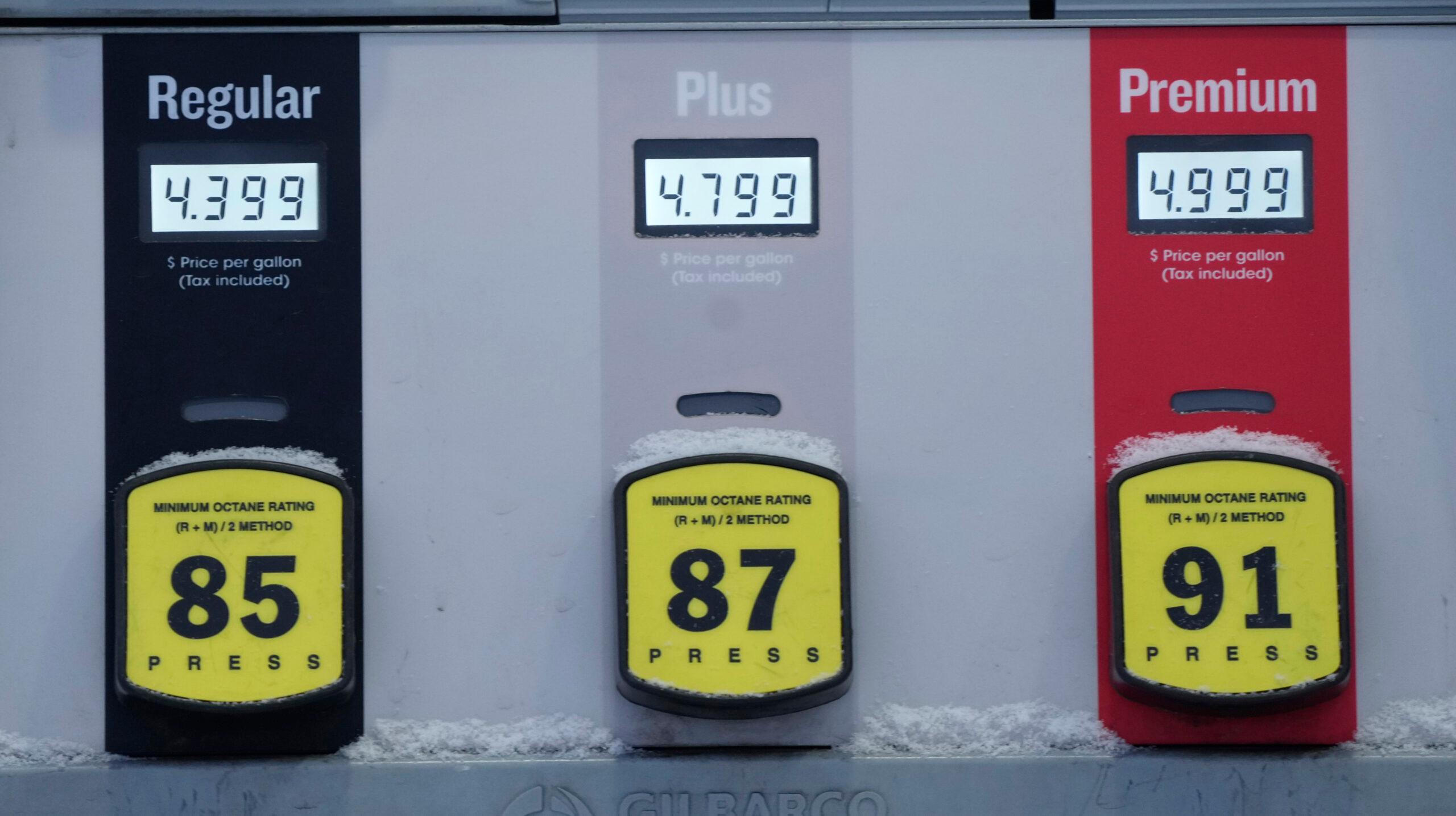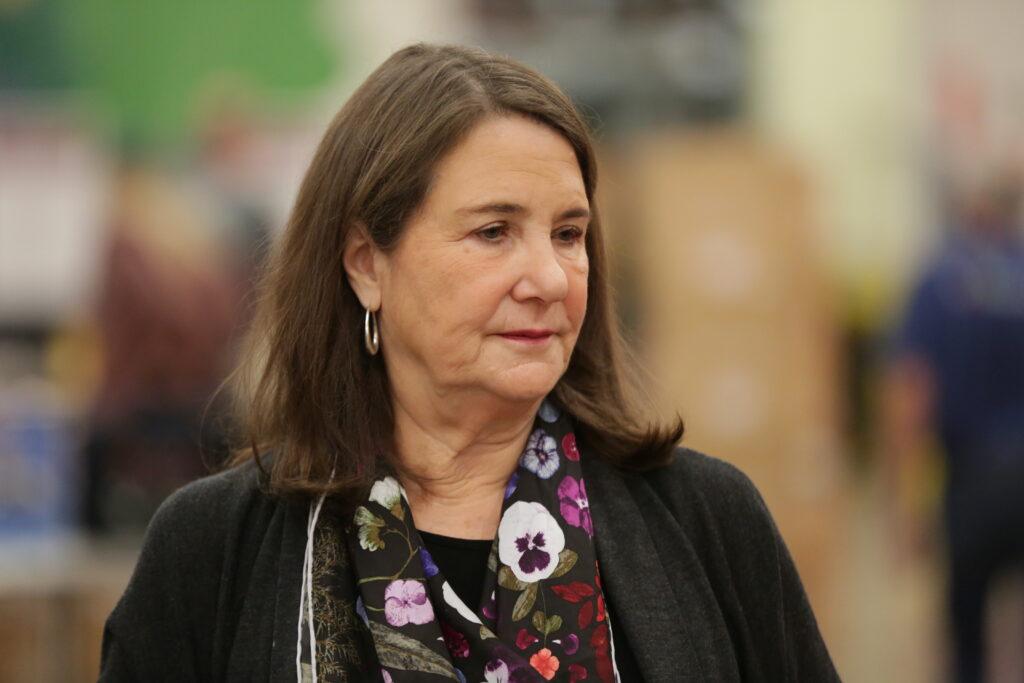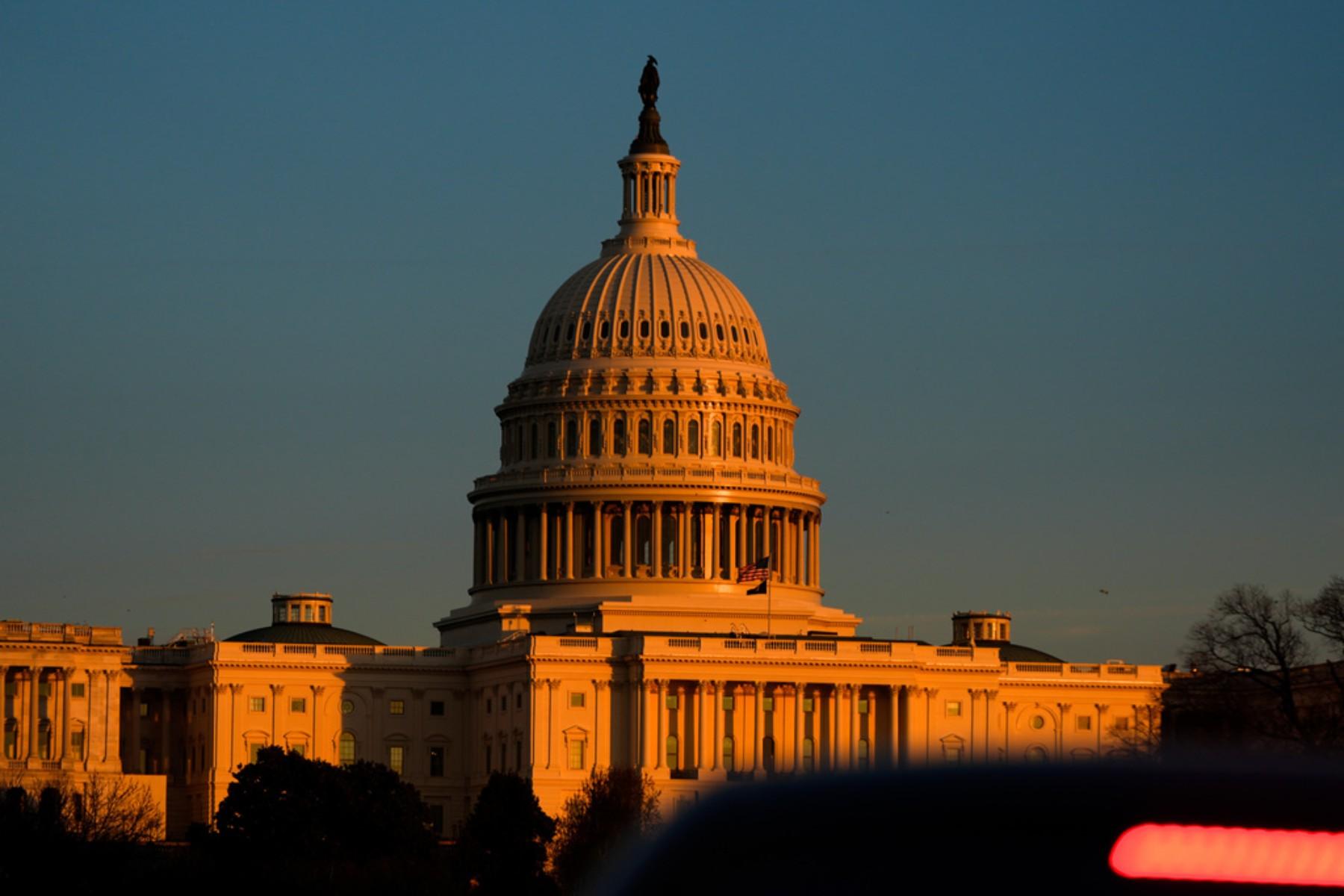
It was a contentious time on Capitol Hill Wednesday, as six oil and gas executives faced questions from lawmakers about the high cost of gasoline.
Democrats focused on the fact companies are making record profits, while Republicans took aim at President Joe Biden’s energy policies.
Colorado Rep. Diana DeGette chairs the Energy and Commerce committee’s oversight panel, which held the hearing. She said high gas prices are constraining “constituents’ budgets and their patience.”
As she spoke, DeGette displayed a chart behind her showing the price of crude oil going up and down, even as the price of gas has risen and stayed high, despite crude prices starting to drop.
“If the price of gas is driven by the global market, why is the price of oil coming down but the price at the pump is still near record highs? If it’s an issue of supply and demand, wouldn’t that be reflected in the global price of oil as well?” DeGette asked. “Something doesn’t add up.”
Oil executives and Democrats, including DeGette, spar over the reason why prices are so high
The oil executives argued it’s not as simple as comparing global prices on any given day to gas station prices.
“Oil that's entering a refinery could have been purchased at a higher price, and therefore that price then flows through all the way to the station. It's not necessarily an instantaneous market,” explained David Lawler, head of BP America.
Chevron CEO Michael Wirth added, “these things do correlate over the long term but in the short term, they don't always go up and down.”
But many Democrats questioned whether companies are giving the full picture about the ongoing high prices.
“While I understand that you simply cannot flip the switch or turn on the spigot, you must be honest about the main reason that some companies are choosing to ramp up production slowly,” said Democratic Rep. Debbie Dingell. “A survey of oil company executives by the Dallas Federal Reserve found that nearly 60 percent of oil companies are restraining growth because of investor pressure.”
The oil executives did acknowledge that their companies earned billions last year, after losing billions in 2020 when the pandemic tanked demand. And many of the CEOs said they would not stop paying stock dividends or pursuing buybacks this year.
They also pushed back on the accusation of price gouging, noting many of the companies did not own the gas stations.
“I want to be absolutely clear: We do not control the market price of crude oil or natural gas, nor of refined products like gasoline and diesel fuel, and we have no tolerance for price gouging,” Wirth said during his opening remarks.

Meanwhile, Republicans try to take advantage of what they see as midterm elections talking point
Republicans dismissed this line of questioning from Democrats. Ranking member Rep. Morgan Griffith used part of his time to ask if oil companies were taking advantage of the situation in Ukraine to keep prices artificially high. The oil executives all said no.
Energy and Commerce Committee Ranking Cathy McMorris Rodgers described the hearing as “a distraction.”
“Today is purely political. President Biden needs cover for his war on American energy,” she said in her opening statement.
Republicans also see a political advantage in energy prices, believing it’s an issue that could hurt Democrats entering into the midterm elections. They used their time to talk about the Biden Administration’s moratorium on new drilling leases on federal lands and regulations they claim impede production.
“Does this whole mountain of red tape by Presiden [Biden] make it harder for you to produce more energy in America?” Rep. Steve Scalise asked.
Most of the oil executives said yes.
Republicans also criticized Democrats' focus on expanding America’s supply of green energy, arguing it has resulted in less investment in fossil fuel production.
DeGette said this debate around more drilling and more lease sales indicates to her that the country needs a long-term energy plan.
“The things that Republicans were suggesting — more permitting, more pipelines, "drill, baby drill" — the executives told me when I talked to them before the hearing today, there is no switch to flip. It's not like any of those things would help us get more supply today,” she said.
She said the people who could were the executives testifying and they “refused to say what they would do.”
Executives maintain that gas prices are complex, but DeGette argues they could take a cut in profits to reduce prices
If there was a theme that the oil executives tried to emphasize — when they got a chance to answer more than a yes or no during the questioning — it was that gas pricing is complex.
“Demand has recovered and is now surpassing pre-pandemic levels for many transportation fuels,” Chevron President Gretchen Watkins noted in her written testimony. “But refinery throughput has not yet caught up with the post-pandemic surge in demand. The loss of Russian supply from the global market has only added pressure on an already strained refining industry that has yet to fully catch up with increasing demand.”
There have been a number of proposals on both sides of the aisle floated to help reduce the price of oil, from a windfall tax for these producers to a gas tax holiday to easing the regulatory burden.
DeGette asked the executives to go back to their boards and see what they could do to reduce prices at the pumps now, even if it meant a smaller profit for them.
House Speaker Nancy Pelosi said last week that her caucus wanted to wait and hear what the oil executives had to say before moving forward on any legislation.








